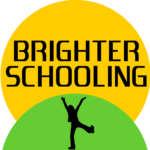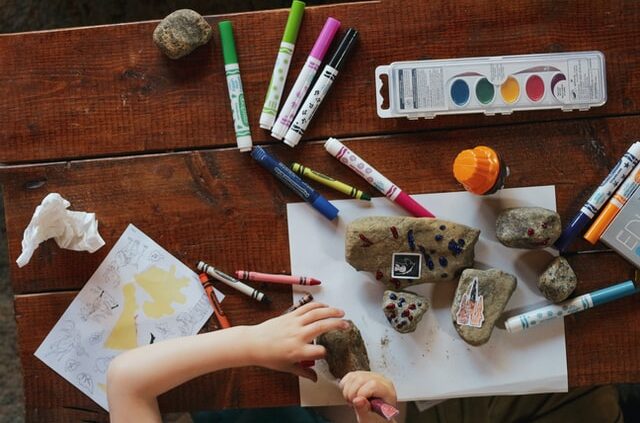How the Pandemic Forced Us to Re-define What Education is
Whatever your opinion on if, when, or the exact manner in which schools should have closed down, there is no denying that education in the U.S. is changed forever. One major way it has changed, is by bringing in the old to deal with the new. Unschooling seems like a new trend the “uber-liberal and passive millennial parents” are doing. But it actually started in the 70’s when a certain John Holt got disillusioned with the traditional school system and started championing the rights of children to dictate their own learning. It has been rather niche, until a certain pandemic made it seem more practical than counter-cultural.
You probably have seen Facebook and LinkedIn posts about compromises and hacks of parents trying to survive the pandemic. This a particularly well-known and extreme one:
We just wrote a hard email. I told our son’s (lovely, kind, caring) teacher that, no, we will not be participating in her “virtual classroom”, and that he was done with the 1st grade. We cannot cope with this insanity. Survival and protecting his well being come first.
— Dr. Sarah Parcak (@indyfromspace) April 8, 2020
Or is it? Isn’t it a parent’s ultimate goal to do what is best for their child? The fear of losing their job and contracting Covid can easily overshadow the fear of shame from others. It is not important anymore that your kid can’t pay attention to several zoom lectures in a row (I mean, neither can many adults, nor should they). What if one could have their cake and eat it too? What if you didn’t have to chase after your kid for every “class” and pay for tons of equipment that they may use for only one year? All this, and be able to focus more on your job?
The whole premise of unschooling and self-directed learning (SDE) is that kids are naturally motivated to learn, and will at their own pace. This has long been the anti-thesis of the current school system, which is based off the premise that kids cannot learn on their own and must be scheduled all day for five days a week to become productive members of society. For the most part, the latter argument won out as it seemed to make more sense. I think it only made sense because schooling was abstracted away, with the main result parents seeing (andtold that mattered at all) being grades and college admission results. What was behind the curtain got revealed when most of the students got sent home for virtual learning. They listened to teacher’s bark at students based on what they saw on a screen, saw the arbitrary and ridiculous schoolwork, and watched their kids’ existential crises implode along with their own.
The reality of it is, the pandemic forced us to re-think many aspects of day-to-day life. As far as here is concerned, we need to ask “What is school?”. To answer that, we then need to ask “What matters?” Well, we can start with the obvious. The safety of our children, and their well-being. That is why they were pulled out of in-class school in the first place, when we weren’t sure about the true nature of the spread of Covid-19. Then there is their preparation for adult life. This is a contentious problem that so far we have seeming to to be trying to solve by doing the same broken solutions more (see Common Core, No Child Left Behind). Essentially, we think that the more tests a student can pass, the better citizen in a functioning society they can be. You say it that way, it sounds insane, doesn’t it? I feel like I have met more people than not who share this opinion. I have definitely met ex-teachers who have left because of all the increased testing. Schools have become essentially testing centers at the expense of the well-being and development of the students. We expect them to stress out for tests that only tell us how well they might do in college (which is only one of many paths).
Now parents’ well-being matters too. After all, the kids can’t be alright if the parents are not alright long enough (see above tweet). This is the more complicated part as school is (and was made) to provide parents respite. They could keep trying to force their kids to a certain schedule as they are barely able to keep to their own. I think this is why SDE and unschooling are appealing to more families. Detractors might say that this lack of standardized ways to educate your kids just puts more work on the parents. I argue that the standardized traditional schooling is the way that adds more stress. What is the best educational plan will vary from student to student, family to family. The lack of standardization is the whole point of SDE. Some parents lay out a schedule for their kids at the beginning of the day for when to do their work. Others let their kids decide for themselves. Maybe you have older kids that can teach the younger ones. Doesn’t this all sound better than forcing your kids to a schedule other people decided, who don’t know your kids? Moreover, also don’t know your responsibilities outside your kids you have to keep your kids housed and fed?
So we answered what education shouldn’t be. But what should it be? To understand the conclusion many families came to, you will have to open your mind, rather than change it. As a child is growing up, what isn’t considered learning? Well, to start, many parents would be quick to say the mass amounts of time on Fortnite or Minecraft isn’t learning. The data suggests otherwise: Minecraft has inspired as high as 85 million to learn to code. I myself have met more than a handful of people who got started coding by creating mods for Minecraft. Well, what about the massive multi-player games? Also don’t have to be a waste of time. Kids can learn valuable interpersonal skills and how to communicate effectively virtually (as a remote freelancer, I can personally attest to the need). Now that kids are home from school, they can spend more time cooking. That presents many opportunities to learn basic chemistry, fractions, cooperative skills, etc. The limits are only within your mind. Older kids can help with taxes and the family budget more, or even shadow you at your job.
As for actual resources outside of the textbooks and workbooks, the sky is the limit as well (or however high the internet exists). I recommend going on TikTok and exploring for a second. Yes, there is a lot of “cringey” and low value content (as anywhere), but many people have taken to sharing tidbits about their culture, lifestyle, identities, and favorite subject. The hours your middle-schooler spends on TikTok might be more educational than the day of schoolwork ahead. I know for a fact I learned more on YouTube than the low-effort charter school my parents paid way too much for me to go to. If you want to know what I am talking about, look up CrashCourse, ElectroBoom, Ask a Mortician, and Butterfly Spanish on YouTube. You will immediately see what I am talking about, and probably start watching some videos yourself.
While many parents will be glad to just send their kids back to school and return to the way it was, many will not. There will be special-needs kids who were found to do better at home. Parents who got proof that no, Tommy isn’t just over-sensitive, his teacher is actually a sociopath. Teenagers who promise to learn to self-teach so they do not have to return to school as to evade cliques and bullying. We probably did not need a pandemic to tell us that the traditional schooling system isn’t working for many bright young minds, but perhaps we did need one to compel us to change.
Sources:
https://www.vox.com/first-person/2020/7/17/21328316/covid-19-coronavirus-unschooling-homeschooling
https://www.theatlantic.com/politics/archive/2020/09/homschooling-boom-pandemic/616303/
https://www.mother.ly/child/unschooling-kids-during-coronavirus
By Shelby Elzinga
Shelby Elzinga is happily a freelancer in Ohio who does WordPress, copywriting, editorials, and self-teaching herself. She is known colloquially in whatever town she is in as "Scooter girl" for her long rides on a Razor kick scooter.



